In this video we offer some thoughts and pointers for navigating paperwork and building a great support team in community-based mental health care.
Category: News
-
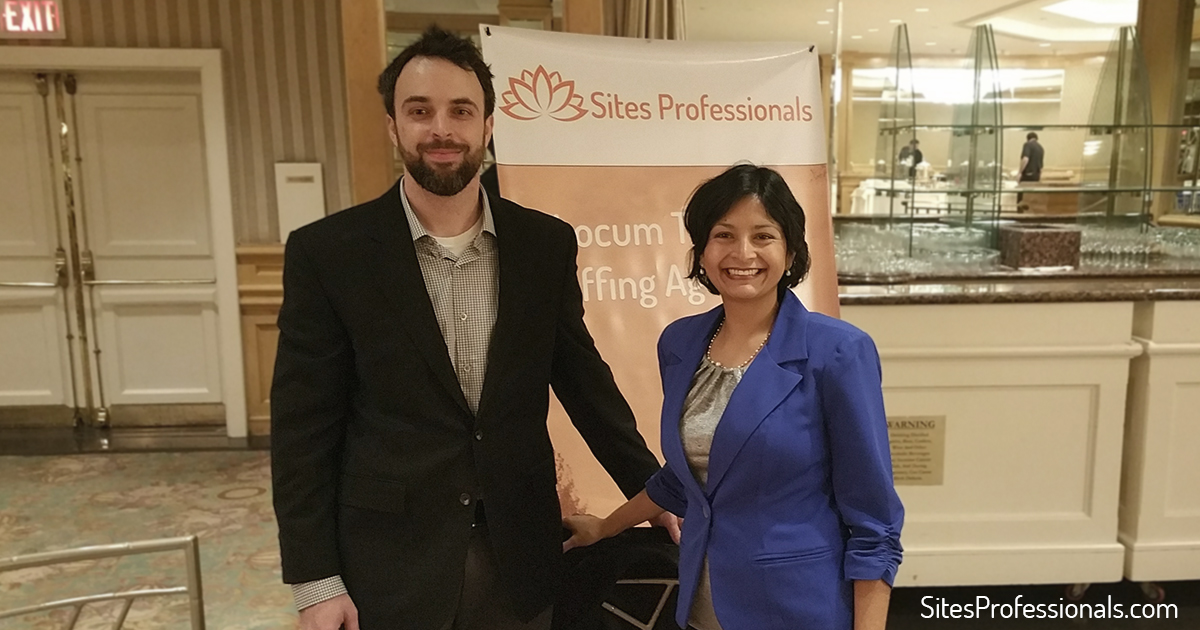
Why do we do it?
We, Nancy and Jeff, have been involved in community based mental health care in Southern California for over 15 years. Our careers followed a path familiar to many in the industry. With bachelor’s degrees in psychology we began as front line staff in a residential treatment setting for juveniles. We both worked our way up to leadership positions, earning master’s degrees along the way. Jeff earned a master’s in business administration and ventured into entrepreneurship. Nancy earned a master’s in clinical psychology and became a Licensed Marriage and Family Therapist and continued to practice as her career advanced.
Our motivation for launching Sites Professionals is the same motivation that has kept us in the industry since the beginning. We do it for the clients. From our first experiences working to improve the lives of the underserved we understood the need for qualified professionals to commit to the helping field. We know firsthand the challenges and rewards of this work. As our careers have developed we have committed to directing our abilities for the greatest impact on those that need it most. That’s why we do it.
-

Change pt 2: Psychiatric Practitioners
There are three components to being customer oriented, and each must be attended to. They are: Who are your customers? What do they need? What are your distinctive competencies capable of servicing those needs?
In the case of most psychiatric practitioners, ‘customers’ includes patients, mental health treatment agencies, and the public or private sources of funding; each of these with distinct and changing needs.
This creates a moving target for practitioners looking for new opportunities. Furthermore, the experience and education that comprise a practitioner’s distinctive competencies represent a significant investment and are not easily adapted to drastic change in the industry.
Do your homework and diversify.
In the short to medium-term, the best way to find a stable and fulfilling position in a community mental health setting is to do your homework. Agencies typically post open positions based on population served and credentials required but you can dig deeper. Ask them questions about their contracts and sources of funding. Ask where they see themselves growing and about the professional interests and expertise of senior managers. Get to know their treatment philosophies and how they foster collaboration and effective utilization of treatment teams. The answers to these questions will give you a more complete picture of what it would be like to join them. This approach has been useful to us too, and only scratches the surface on what is involved in a great placement.
Thinking longer-term, we recommend diversification. Look for opportunities to service different populations in different treatment settings. This can be done in part-time or short-term placements, or by jumping feet first into something new. The experience you gain will be both fulfilling and valuable. Related to diversification is the strength of your peer group. Building a professional network of practitioners will keep you connected and informed in an ever-changing industry. Taking these steps will put you in the driver’s seat and prepared to adapt.
-
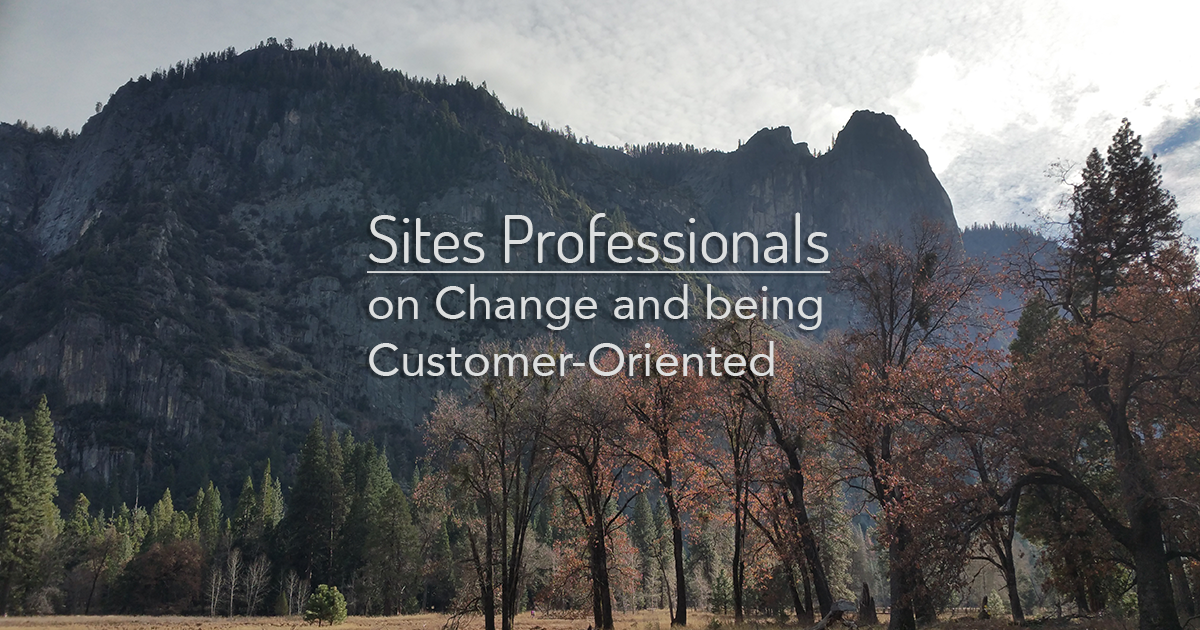
Change and Being Customer Oriented
The pace of change in the field of mental health can be disorienting. It is an industry tied closely to the whims of public policy makers and influenced by public perceptions.
Reimbursement rates fluctuate. Rules for access to care are continually tweaked and amended. News of epidemics, such as homelessness and opioid addiction, spur public action that bring both opportunities and challenges to mental health care providers.
Change is to be expected in any industry. When it occurs, it becomes clear that some businesses have better positioned themselves than others to deal with it. But how? Is it luck? Probably not.
‘Adaptability’ is the easy answer to how some businesses successfully deal with change. But what does that look like in a non-profit mental health services agency or in a practitioner?
For this post we are looking at agencies. Business schools teach the concept of having a “Customer-Oriented” business model. This is in contrast to the “Product-Oriented” approach in which a business focuses on the goods and services it provides today in order to find ways to improve them. The product approach plans only for a future in which the business’ services remain relevant. This is a fine strategy for an unchanging industry. Of course, all industries change.
Instead, by building your business around the needs of customers you are better positioned to weather periods of change. You gain a clearer view of the value you are providing to your clients. You are focused on delivering what they need, so you are the first to know when those needs start to change. Refining your business with this in mind requires dedicating time and money to analyzing the work you do and how it might change with the needs of your customers over time. This is a structural challenge that requires buy-in at all levels of your organization. Front line staff are your eyes and ears, and must communicate client feedback to managers. They must also be prepared to routinely adapt to changes in procedure. Management must attend to training employees for change, while they keep an eye on the big picture.
For mental health service providers it boils down to maintaining a balanced team of prescribers and support staff, and being prepared to rebalance and retrain your team on a regular basis. Maximizing the value of your team allows your agency to thrive while providing the best quality of care to your clients. It isn’t rocket science, but it can be daunting. We can help.
-

Placement Service for Prescribers
Sites Professionals simplifies the process of matching and placing you with local agencies, so that you can have an impact in the areas of greatest need. The advantages of working with us include finding flexible assignments in the areas of focus that most interest you.
We know that you can provide the best care to patients when the work is closely aligned with your passion and you are not overly burdened by the administrative processes that come along with it.
Working with Sites Professionals, whether to work a couple days a week or to find a new full-time position, gives you the benefit of 24/7 support from a team with expertise in the laws and processes of mental health. You set your rates, hours and availability. Let us take care of the rest.
-

Thoughts on Burnout
There’s much discussion these days about burnout, particularly among physicians and psychiatrists. Medscape and the American Psychiatric Association recently published and discussed a survey indicating 40% of MDs are experiencing some level of burnout.It’s safe to say that this problem is not limited to doctors. It’s common for people at all levels in the field of mental health to have had feelings of burnout from time to time.
The complexities of the helping field only complicate a profession that requires you to be emotionally present on a daily basis. The challenges of bureaucracy and paperwork only make matters worse.
Self-care and maintaining a healthy work culture with empathy are essential to alleviating burnout in your team.
Helping you manage bureaucracy and paperwork is our small contribution to alleviating this problem.
-

Are We Middlemen?
No. Sites Professionals performs or enhances work essential to a functional psychiatric services program. We personally recruit and place psychiatrists and other practitioners with mental health providers. Sites Professionals remains committed to the successful deployment of practitioners by making sure they are prepared, and have the knowledge and passion for community-based mental health. We provide hands-on support for the duration of our placements. We are focused on California, where we know what it takes to run a psychiatric services program effectively, and where we can have routine in-person meetings and introductions with our clients.
For agencies, our work enhances the capabilities of your existing team without having to undergo the expensive process of developing them internally. For practitioners and agencies, our first class customer service, experience, and network, provide flexibility and confidence that our matches are a success for all parties. Let us do the leg work for you.
Our mission is in the support of building resilience in the lives of children, youth and families. The service and dedication we provide you is our methodology.
-
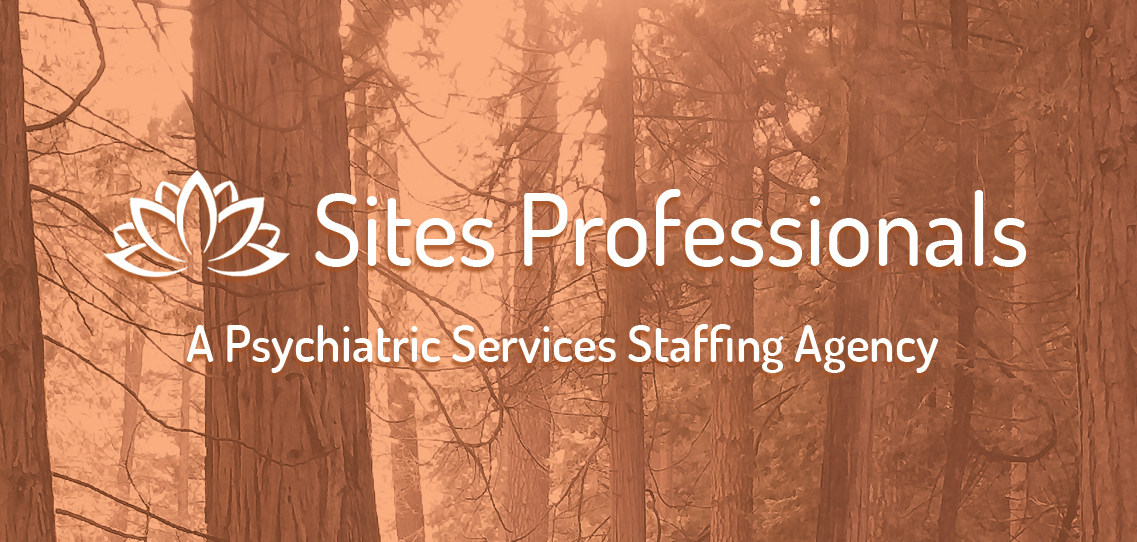
The Complete Package for Agencies
Working with Sites Professionals to staff and support your organization’s psychiatric services has benefits beyond just the recruitment and placement of practitioners. We help provide insight into the best way to build and utilize your medication support team for better client care and efficient billing and reimbursement. That is why we get to know you with in-person meetings and frequent contact. We are big believers in the value of community-based care, and buying into your mission allows us to find terrific matches for your staffing needs.
-
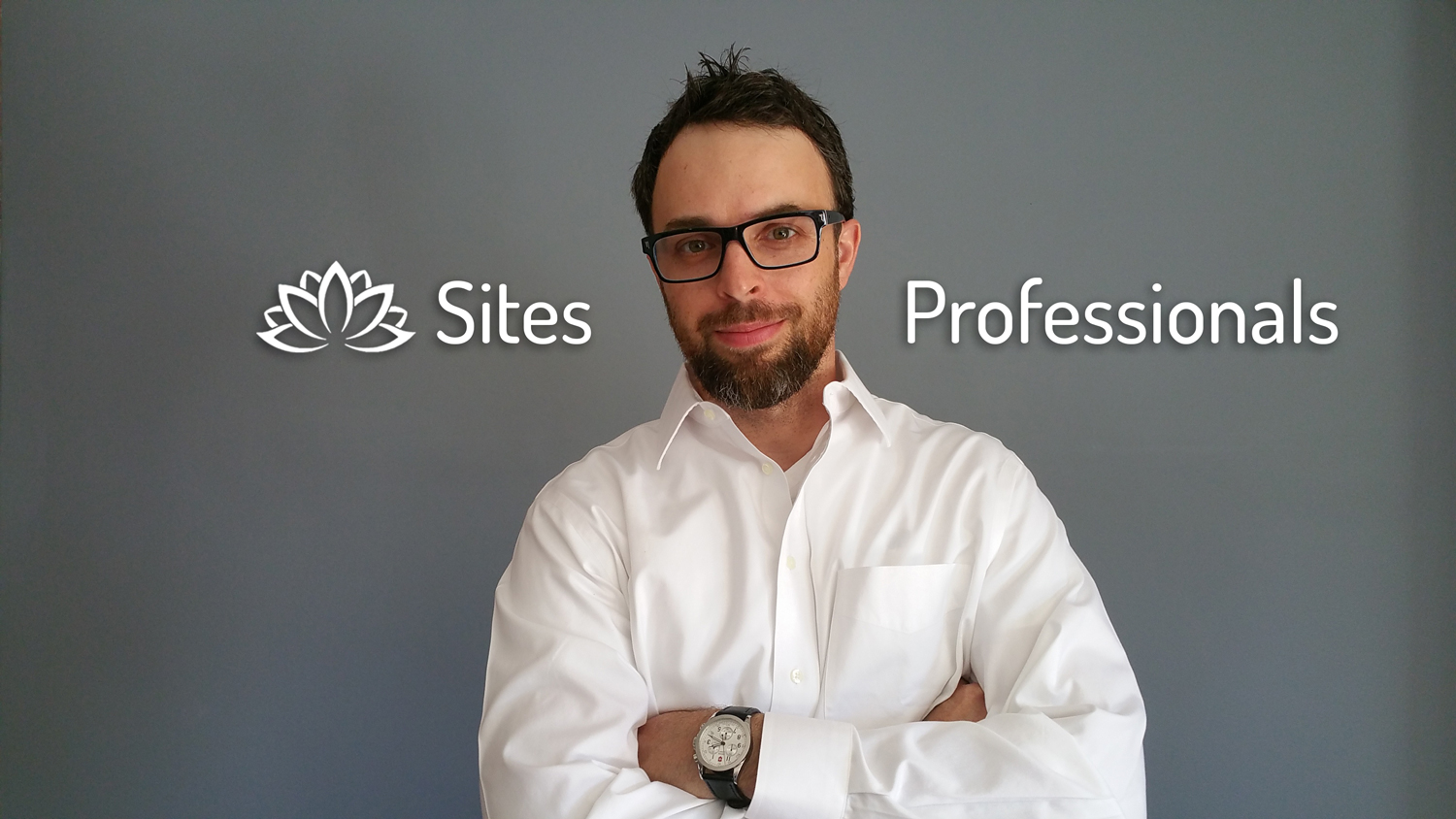
Staffing Placement Process for Agencies
Working with Sites Professionals to fill your psychiatric staffing needs usually follows just a few steps. We personally get to know your agency to make sure we’re a good fit for your recruitment needs. Once it’s decided we are a good match, we sign an agreement. Then Sites Professionals identifies appropriate candidates from our network of providers and we arrange a face-to-face introduction between them and your team. Once you accept a practitioner the deposit is due, followed by a signed Assignment Confirmation letter. The placement then commences.
Most of our placements are for a period of 12 months. Six-month placements are available in many cases. At the conclusion of the placement, the agreement can be renewed, terminated, or in many cases there is a buyout option.
We have much more information on our website including a new FAQ section for Agencies
Or you can contact us directly. Happy New Year!
-
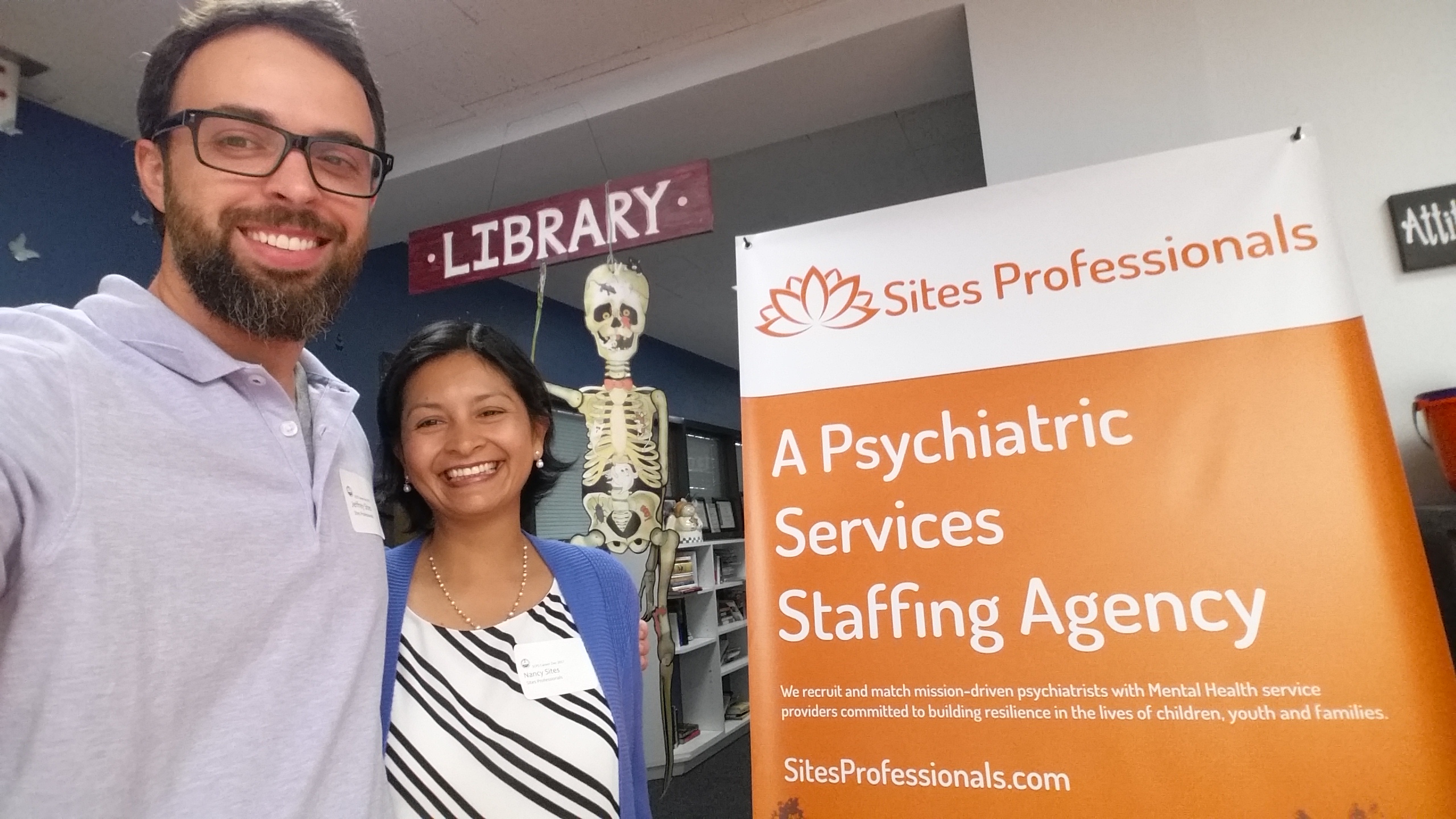
SCPS Career Day
Thank you to everyone we met yesterday, and to the Southern California Psychiatric Society and Didi Hirsch for hosting Career Day.
-

The Psychiatric Shortage
A report recently published by the National Council for Behavioral Health lays bare the challenges faced by service providers in providing their patients with adequate psychiatric care. Among the many startling findings is the scope of the shortage which has become a nationwide problem:
“[The] study revealed that 55 percent of counties in the continental U.S. do not have any psychiatrists. Another study concluded that 77 percent of U.S. counties had ‘severe shortages’ of psychiatrists and other behavioral health providers.”
The report goes on to highlight a number of factors that have contributed to and exacerbated the shortage, particularly those that have led an increasing number of psychiatrists to operate exclusively in cash-only private practice. The result of which is that outpatient clinical psychiatry is left with an acute shortage of psychiatrists. These factors include: work environments plagued with employee burnout; a delay in the adoption of efficient and productive services such as Collaborative Care and Telepsychiatry due to regulatory restrictions; insufficient levels of reimbursement for psychiatric care; and the challenges of servicing geographically dispersed populations. This has deleteriously impacted the quality of care for particularly vulnerable populations. Families, foster youth, and the elderly are among the groups most likely to experience longer wait times and otherwise diminished access to quality integrated psychiatric services.
While we do not presume to have all of the answers, we see a number of ways in which psychiatrists, mental health agencies, and organizations like Sites Professionals can act to improve access to quality psychiatric care for all patients. For one, we work to improve the efficiency of the processes by which agencies and psychiatrists provide services. Efficiency is the work of systems and should be largely unseen by frontline service providers. It should make their work more fruitful and impactful by removing barriers to productivity and many common causes of burnout. With proper implementation, mental health agencies can dedicate their resources to quality of care while psychiatrists can focus on their clients without getting bogged down in administrative work.
